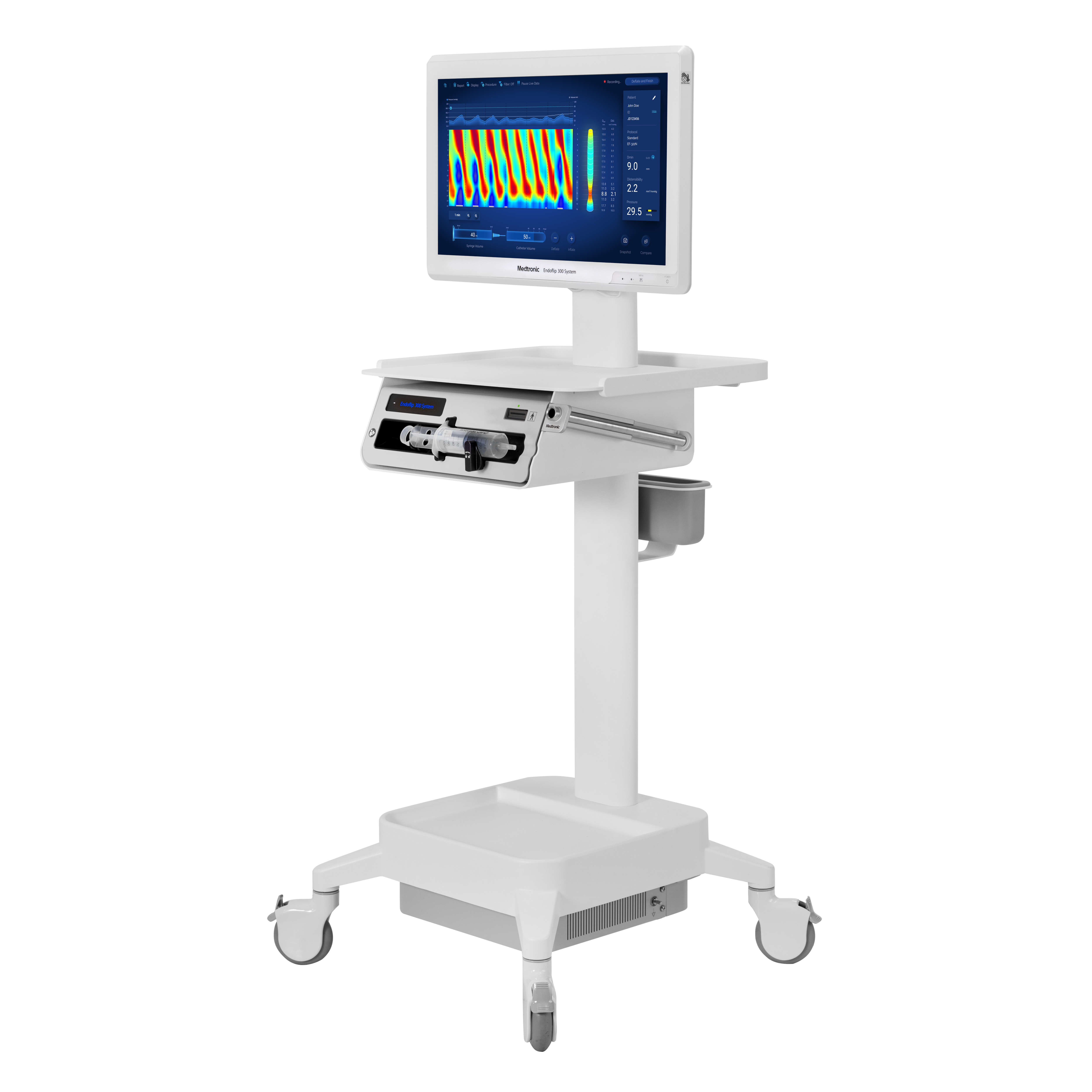Overview
Detect motility disorders
Endoflip™ 300 provides real-time measurements of the pressure and dimensions of the esophagus during endoscopic evaluation and surgical procedures.1 Endoflip™ 300 is a well-tolerated, convenient way to assess esophageal motility that can inform the need to refer patents to high-resolution manometry.2,3 During surgical procedures Endoflip™ 300 gives real-time feedback that can reduce negative outcomes of procedures like Nissen fundoplication, Heller myotomy, and per-oral endoscopic myotomies.4–6
Risk information*:
Arrhythmia, Anaphylaxis, Aspiration/inhalation, Bacterial infection, Bleeding/hemorrhage, Death (for Esoflip procedures only), Delay to treatment/therapy, Dental trauma, Dysphagia, Gastrointestinal regurgitation (for Esoflip procedures only), Heartburn/indigestion (for Esoflip procedures only), Hypersensitivity/allergic reaction, Laceration of the esophagus, Misdiagnosis/misclassification, Pain, Perforation of the esophagu,s Thermal burn, Vasovagal response







